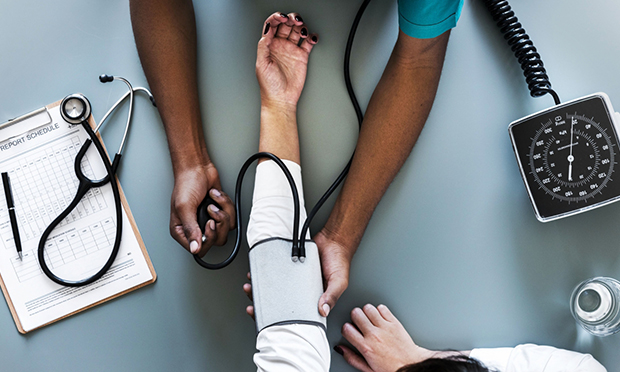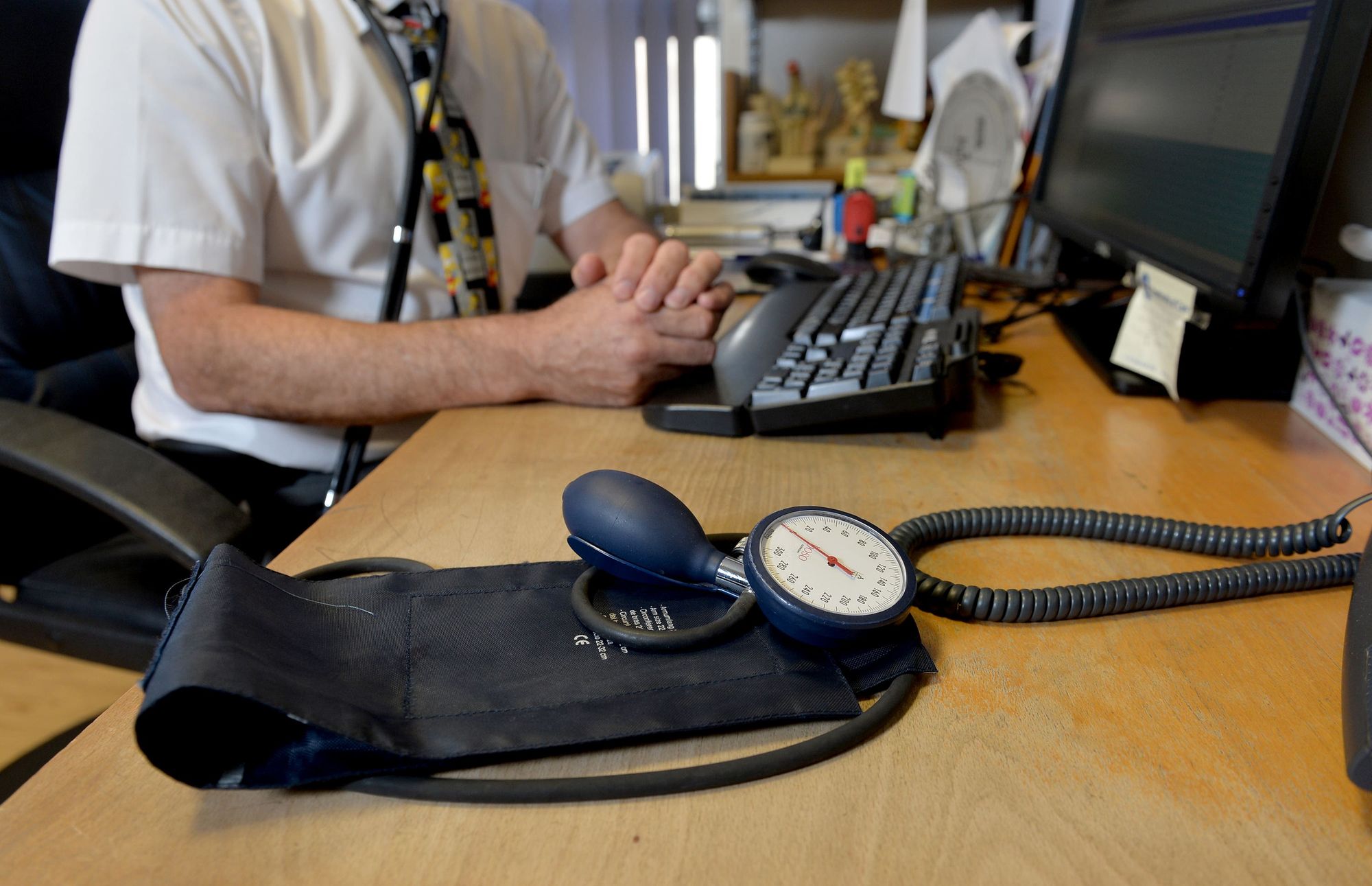No, In most cases, you cannot be registered with two General Practitioners (GPs) at the same time. This is because each GP practice holds your medical records, and having duplicate records can lead to confusion and errors in your care.
Additionally, being registered with multiple GPs can pose clinical risks, such as conflicting prescriptions or treatments. It’s important to choose one GP who can provide comprehensive and coordinated care to ensure your health needs are properly managed.
If you need care from different GPs for specific reasons, it’s advisable to communicate openly with your primary GP. Seek referrals or consultations as necessary, ensuring comprehensive and coordinated healthcare.
What Role Does GPs Play In Healthcare?

GPs are like your main healthcare helpers. They’re usually the first doctors you see when you’re not feeling well. They take care of lots of different health problems, from regular check-ups to long-term illnesses like diabetes.
General Practitioners head your family’s health team and make sure you and your family get the finest care and advice possible. They exist to facilitate your contentment and health so that you can experience life to the fullest.
Key aspects of understanding General Practitioners include:
Role in Healthcare
GPs are frontline healthcare providers responsible for diagnosing, treating, and preventing a variety of health conditions. They address both acute and chronic medical concerns and often serve as coordinators of care for their patients.
Comprehensive Care
GPs provide a wide range of healthcare services to take care of you from head to toe. They help with routine check-ups to catch any problems early and give vaccinations to keep you healthy.
Moreover, if you have conditions like diabetes or high blood pressure, they’ll help manage them. It also supports your mental health and can perform small surgeries if needed.
They’re like a one-stop shop for all your health needs, making sure you stay well and get the right care when you need it. Whether it’s a cough, a check-up, or something more serious, your GP is there to help you feel your best.
Continuity of Care
GPs focus on building long-term relationships with their patients, providing continuity of care over time.
This continuity fosters trust and enables GPs to better understand their patients’ medical histories, preferences, and unique healthcare needs.
Holistic Approach
GPs take a holistic approach to healthcare, considering not only the physical aspects of health but also the psychological, social, and environmental factors that influence well-being.
They often engage in preventive medicine and health promotion activities to support overall wellness.
Gatekeepers to Specialized Care
GPs act as gatekeepers to specialized medical services, coordinating referrals to specialists when necessary.
They assess patients’ needs and refer them to appropriate specialists for further evaluation and treatment beyond the scope of primary care.
Advocacy and Patient Education
They advocate for their patients’ health and well-being, empowering them to make informed decisions about their healthcare.
Further, they provide education on disease prevention, lifestyle modifications, medication management, and self-care strategies.
Patient Registration with GPs
Patient registration with General Practitioners (GPs) is a fundamental aspect of healthcare delivery in many countries. Here’s an overview of the process:
Initial Contact and Inquiry
When you first need to see a GP, it’s like starting an adventure in healthcare. You could call the doctor’s office, walk in and ask for an appointment, or even book online if they have a website.
Sometimes, another doctor could suggest you see a GP, and that’s how your journey begins. It’s like opening a door to getting the care you need. However you reach out, the important thing is taking that first step towards feeling better.
Registration Form Completion
Upon arrival at the GP practice, the patient is greeted by administrative staff who provide them with a registration form. This form serves as the primary document for gathering essential information about the patient
It typically includes sections for personal details such as name, date of birth, gender, contact information (address, phone number, email), and emergency contact information.
Medical History Disclosure
When you visit a GP for the first time, they’ll ask you about your health history. This means they want to know about any health problems you’ve had before, like surgeries or allergies. They’ll also ask about any medicines you take regularly.
Further, if your family has a history of certain health issues, they’ll want to know that too. This helps them understand your health better and make sure they give you the right care. It’s like putting together puzzle pieces to see the whole picture of your health.
Consent and Privacy
Patients can be required to sign consent forms, acknowledging their understanding of the GP’s privacy policies. They grant permission for the collection, use, and sharing of their medical information for treatment purposes.
So, this ensures compliance with data protection regulations and maintains patient confidentiality.
Proof of Identity and Address Verification
To verify the patient’s identity and residency, they can need to provide official documents such as a driver’s license, passport, or national identification card, along with proof of address such as a utility bill or lease agreement.
Registration Process Guidance
Administrative staff are available to guide patients through the registration process, answer any questions they have, and assist in completing the required forms accurately.
Allocation of GP
Once the registration process is complete, the patient is assigned to a specific GP within the practice. Factors such as the GP’s availability, expertise, language preferences, and patient’s specific healthcare needs can influence this allocation.
Introduction to Services
Patients are briefed on the range of services offered by the GP practice, including routine check-ups, vaccinations, and health screenings. They also receive management of acute and chronic illnesses, mental health support, preventive care, and access to allied health professionals if needed.
Continuity of Care Planning
The GP reviews the patient’s medical history and establishes a plan for continuity of care, ensuring that the patient receives ongoing support and follow-up appointments as needed.
This can involve scheduling regular check-ups, monitoring chronic conditions, and coordinating referrals to specialists or other healthcare providers.
Patient Education and Empowerment
GPs can take the opportunity during the registration process to educate patients about preventive health measures, healthy lifestyle choices, medication management, and self-care strategies. Also, empowers patients to take an active role in managing their health and well-being.
Feedback and Follow-up
Patients can be invited to provide feedback on their registration experience, allowing the GP practice to continuously improve its services. Follow-up communications, like appointment reminders or health education materials, enhance patient engagement and adherence to healthcare interventions.
How long does it take to register with a GP?

The registration process with a GP typically involves filling out a registration form, which should take around 15 minutes. You can submit this form to the receptionist at your chosen GP surgery or complete an online registration.
Following submission, the registration process can take approximately 10 to 14 days, depending on the policies of the individual practice. During this time, you should expect to receive a registration confirmation letter at the address provided on your registration form. If you’re registering for the first time, your NHS number will be included at the top of this letter.
If you require immediate medical attention before your registration is complete, consider these alternatives:
- Walk-in Centre: Locate the nearest walk-in center where you can receive medical care without an appointment.
- A&E (Accident & Emergency): If your condition is life-threatening and cannot wait until the next day, go to the nearest Accident & Emergency department for immediate assistance.
- Private GP Consultations: Consider scheduling a private GP consultation for prompt medical attention. This can involve additional costs, but it can provide quicker access to healthcare services.
FAQ’s
Can I be registered at 2 GPs UK?
No, you can only be registered with one NHS GP practice at a time in the UK. However, you can be allowed to register with a temporary GP practice while away for work or study, but you won’t have access to your local GP services during that time.
Can you use two GPS?
Yes, GPS blending involves combining the readings from two GPS receivers to improve accuracy and reduce the chances of glitches affecting the vehicle. This method is beneficial in scenarios where precise positioning and speed accuracy are crucial.
How do I deregister from the GP?
To deregister from a GP surgery, a patient must send a signed letter expressing their desire to be removed from the practice. The Primary Care Support England (PCSE) typically places the patient on a pending deduction for 14 days after receiving the request.
Final Words
It’s generally not allowed to be registered with two GPs. This is because having duplicate medical records can cause confusion and mistakes in your healthcare.
Plus, different GPs could suggest treatments that don’t work well together. It’s best to stick with one GP who can take care of all your health needs. If you need to see different doctors for specific reasons, just talk to your main GP about it.
Keeping things simple with one GP ensures better care and fewer complications.



